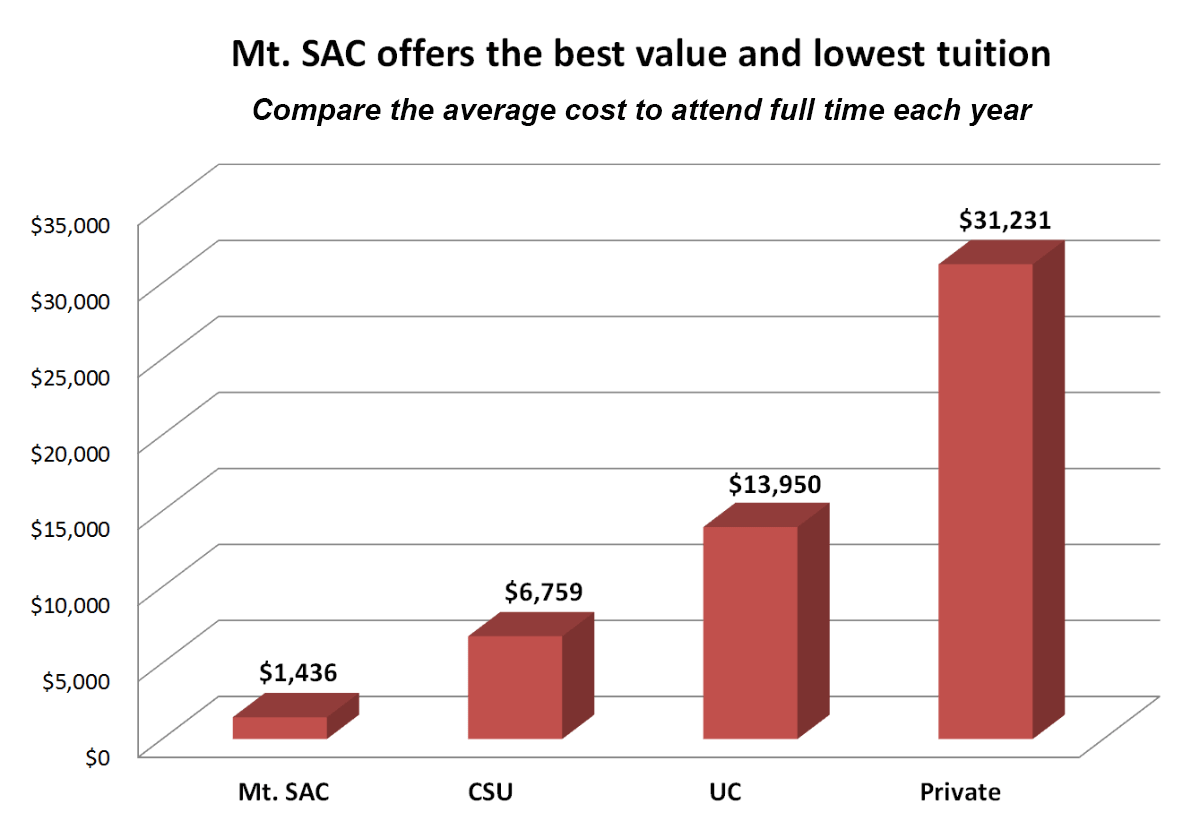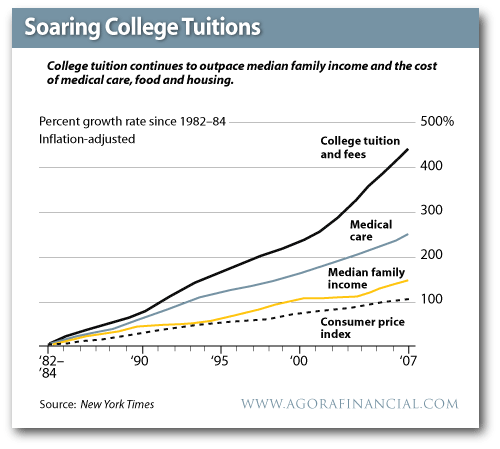Shopping For Community College
- Check the local community colleges through the American Association of Community Colleges.
- The New York State Higher Education Services Corporation provides all factors to consider when choosing a college.
- The National Center for Education Statistics offers an online college navigator to locate potential schools by types of degrees and campus setting, size of enrollment, etc.
Article Table of Contents
Should I Go To Trade School
Vocational training programs can save you time and money. So this path may be right for you if you need to start work fast and you want to rack up student debt.
Also consider vocational training if you:
- Can see yourself in an in-demand field like health care or IT.
- Want to work solving problems in mechanical or electrical systems.
- Want to work for yourself or start your own business in a skilled trade.
Before you commit to a training path, do your research and reflect on what you want in your career. You can find several career aptitude tests online. The Lantern Career Interests Quiz is free, fast, and uses data from more than 200 occupations to match your preferences to career options.
A Breakdown Of The Average Costs Of College
To give you a quick overview of the costs for a full year of college at a four-year public and private nonprofit college, we’ve included a breakdown of all costs associated with going to college. This includes the average college tuition cost, room and board, books and supplies, transportation and other expenses.
| Public two-year | |
|---|---|
| $40,940 | $50,900 |
Community colleges are primarily two-year public institutions but some schools also award four-year degrees and there are private community colleges. According to Community College Review, the average cost of community college is $4,864 and $8,622 per year for public community colleges. For private community colleges, the average tuition is around $15,460 per year.
Also Check: What Is The Best College For Dental Hygienist
Average Salary After Trade School
After earning a professional certificate and passing any required licensing exams in your state, you can start making money in your trade. Plus, there are many occupations where you can earn higher-than-average pay.
According to 2020 data from the U.S. Bureau of Labor Statistics , the median salary for occupations requiring a postsecondary non-degree credential is $50,961. Compare that to the median annual wages for all occupations $41,950.
We’ve collected top trade school jobs in the table below. You can find more top-paying trades jobs and information about how to break into these fields.
| Career |
|---|
Data sourced from the BLS.
Will My Work Pay For My Trade School

There are many ways to fund your vocational education. Sometimes your employer will pay or reimburse you for education.
Say you want to become a certified nursing assistant or nursing aide. The federal government reimburses long-term care facilities for the cost of training employees. So as long as you complete a state-approved training program at a nursing home or residential facility, you won’t need to pay tuition.
When it comes to becoming a truck driver, you can avoid upfront costs by completing a company driving school. Companies hire graduates from their schools. After you’re hired, your company will deduct installments from your paycheck over your first year or two. Frequently, after you’ve stayed with the company for a couple years, it will reimburse you for a significant portion of your training expenses.
Likewise, major car manufacturers train mechanics to become automotive technicians and gain higher-level certificates or advance their careers.
Finally, jobs in the military offer tuition benefits, including the Post-9/11 GI Bill, which can help you finance a professional certificate or a degree. Many welders and auto technicians learn their craft in the military then complete their formal certificate, associate, or bachelor’s degree with funding from the GI bill.
Read Also: Does San Jacinto College Offer Bachelor Degrees
Average Cost Of Community College
Report Highlights. The average cost of commmunity college attendance is $7,460 total or $1,865 per semester.
- Tuition alone for in-district community college attendance averages $3,400.
- For out-of-state students, the average community college tuition is $8,210.
- The average total annual cost to attend any 2-year institution is $10,300.
- Private 2-year institutions charge an average of $15,100; in-state tuition at a public 4-year institution averages $9,308.
- The annual tuition at a private 2-year institution can be as high as $25,000.
Jump to a state: AL | AK | AZ | AR | CA | CO | CT | DE | FL | GA | HI | ID | IL | IN | IA | KS | KY | LA | ME | MD | MA | MI | MN | MS | MO | MT | NE | NV | NH | NJ | NM | NY | NC | ND | OH | OK | OR | PA | RI | SC | SD | TN | TX | UT | VT | VA | WA | WV | WI | WY
Estimated Future Cost And Expected Tuition Increase
What will it cost to send your child to Community College of Denver in the future? In the past four years, this school’s published in-state tuition and fee total rose from $2,998 to $3,765. This amounts to an average annual price increase of 5.1%. Nationally, university tuition prices are rising around 5% per year. Looking out five, ten, fifteen or eighteen years, these are CollegeCalc’s estimates how much you could expect to pay for a 2 year degree assuming tuition increases at the national average rate. Estimated future prices are based on the current in-state 2 year cost of $48,470.00. Use the college savings plan calculator below to perform a more comprehensive analysis on future costs and how much you will need to save for Community College of Denver.
| Annual |
|---|
College Cost Analysis.
- CollegeCalc is a source for students and parents seeking college pricing data and higher education cost calculation. Learn more.
- Terms of Service
- All school data is sourced from the U.S. Department of Education IPEDS Surveys for school years 2019-2020 and 2018-2019 and is in the public domain. Site data was last updated in January 2021 This site is not affiliated with or endorsed by the U.S. Department of Education. We believe the content represented on this website to be correct yet make no guarantee to its accuracy. CollegeCalc.org has no direct affiliation with the schools presented on this website and the school names are the property of their respective trademark owners.
Don’t Miss: What Are The Top Online Colleges
Tuition And Fee Information
The average cost to educate a resident full-time community or technical college student for the 2020-21 academic year is $10,557. Students pay an average of $3,351 in tuition toward this cost. The remaining $7,206 is an opportunity pathway provided by the State and is funded by state taxes and other sources. These amounts are averages for a full-time, resident student. The actual tuition a student pays will vary due to credit load, residency status, selected programs, and other factors.
Classes are charged on whether they are tuition based or fee based depending on the course. This may affect the amount you are being charged and account for any changes in tuition and fees compared with previous quarters. Please use the;class schedule search;to determine how courses are charged.;;
If you have questions about tuition and fees please contact the;WCC Business Office. If you would like to talk with someone about changing classes to possibly reduce your cost, or for any other reason, contact your;advisor.
Save On Room And Board
There is a community college within commuting distance of 90 percent of the U.S. population, so convenience is a big selling point. If you have family obligations or just don’t feel financially ready to strike out on your own, a community college can enable you to continue your education without breaking the bank.
Recommended Reading: Do Community Colleges Have Bachelor Degrees
Average Cost Of College In America
Our researchers found that the average cost of college for the 20172018 school year was $20,770 for public schools and $46,950 for nonprofit private schools, only including tuition, fees, and room and board. Each year, school costs have continued to increase, even accounting for inflation. We took a look at higher education data from the College Board to provide a deeper understanding of the costs and the differences between states, school types and degrees.
Estimated 2 Year Cost At Published Tuition
At the current published rates, an estimated total tuition, fees and living expense price for a 2 year associate degree at CCD is $48,470 for students graduating in normal time. This methodology for estimating the 2 year cost is a straight multiple of the most recent reported annual total cost and does not factor in tuition increases during the time you’re in school. It also assumes you receive no grant or scholarship aid and pay the full list price.
A potentially more accurate but less conservative estimate of a degree cost can be made by using the school’s annual $9,482 in-state net price as the basis. Applying this cost over 2 would estimate the cost of a degree at $18,964**
**Based on a 2 year multiple of Average Annual Net Price for in state students receiving grant or scholarship aid reported to the U.S. Department of Education’s 2018/2019 IPEDS Survey. Financial aid is only available to those who qualify. Consult this school’s net price calculator for further understanding of your potential net price.
You May Like: What Colleges Are Good For Pediatric Nursing
Average Cost Of College Statistics And Key Findings
- Average Total Cost of Public Colleges: $25,290 $40,940
- Average Total Cost of Private Colleges: $50,900
- More than 19.9 million students are projected to attend American colleges and universities in fall 2018, with around 6.7 million going to two-year institutions and 13.3 million going to four-year institutions.
- The majority of students pay between $6,000 and $15,000 in tuition for both public and private schools in the United States.
- New England has the highest tuition cost for both two-year and four-year public schools, with an average of $5,370 and $12,990, respectively.
How Much Does Trade School Cost

According to a Strada survey, since the pandemic, American workers favor shorter skills-training programs and non-degree credentials versus college degrees. Trade schools have always offered speedier pathways and hands-on training for in-demand jobs. Today, trade programs come in many shapes and forms but nearly always cost less than four-year colleges and equip you to start working in a year or less.
“Trade schools” including career colleges, vocational schools, and certificate-granting programs at community colleges cost around $33,000 on average. That said, the cost of trade school varies by program. In-district community colleges offer certification programs with tuition as low as $2,500 a year.
Knowing the average cost of trade school and how different programs charge can help you decide on your skills training path.
Don’t Miss: How Much Is College Tuition For 4 Years
Pell Grants And Other Grant Aid
77% of Community College of Denver students received grant aid in 2018/2019. The average total aid amount was $6,492. 59 percent of students received aid in the form of Pell Grants from the U.S. Federal Government. The average Pell Grant awarded for 2018/2019 was $5,241. To apply for a Pell Grant to attend Community College of Denver, the first step is to fill out the Free Application for Federal Student Aid .
| Financial Aid Summary |
|---|
| 32.4% less expensive |
Tuition/fees Are Subject To Change At The Discretion Of The College
*The full-time rate does not apply during the summer semester; charges are based on credits or their equivalent.
Tuition and Fee Schedule 2021-2022 SFA 04/13/2021
Don’t Miss: How To Get Into Junior College
Indiana 21st Century Scholars Program
This is a unique program that offers up to four years of tuition to the states residents with a requirement that they have to commit to the program in 7th or 8th grade.
It also requires the applicants to have good academic performance throughout their high school, and good behavior that is free of drug use and other illegal acts.
Eligibility Criteria
Students must enroll in 7th or 8th grade, earn an overall high school GPA of 2.5 on a 4.0 scale, complete the Scholar Success Program, and earn Indianas Core 40 Diploma, and complete at least 30 credit hours each year in college.
An income threshold levelalso applies to be eligible for the program.
The Work First Kentucky Scholars Program provides free community college tuition to students in Kentucky who pursue degrees in an in-demand workforce sector, including healthcare, advanced manufacturing, transportation/logistics, business services/IT, and construction.
Eligibility Criteria
To apply for this program, the student must be a US citizen and a resident of Kentucky.
They should be a high school graduate or be enrolled in or have completed a General Educational Development Program but have not attained an associate degree. A student must apply or be accepted at an eligible institution approved by the Kentucky Higher Education Assistance Authority.
What Are The Extra Costs
If the class also has a lab, the lab fees and time should be covered by the cost of the class itself.; When signing for a class, it will note if there are any type of labs that will have to be covered.
All colleges have some type of application or processing fee this is usually $25-$75.
If you choose a payment plan with some courses, a payment plan premium fee may apply.
The cost of books and manuals for each class will cost extra.; See How Much Do Textbooks Cost
If you live out of state, or in some cases out of the county, the cost per credit hour will be higher.
Additional books will be required for each and every class.; CDs or computer-related coursework may also be required.; The prices for books will greatly vary depending on the class.
For community colleges that offer housing on campus, housing and food will cost extra.; Keep in mind that many community colleges dont offer room and board.
Late registration fees may apply.
Late payment fees may apply.
Recommended Reading: How To Find What To Major In College
Community College Cost Savings
Students who start out at a community college will save a significant amount money on tuition and room and board costs. Based on student budgets calculated by financial aid offices, students can save as much as $30,000 or more by attending a community college instead of a private 4-year college. Students can save about 8,000 by attending a community college instead of a public 4-year in-state college. These figures may be even higher if the student lives at home while attending community college.
Which State Has The Cheapest Community College
Kansas Coffeyville Community College reportedlyhas the lowest average tuition in the US at $1,120 per year.
Meanwhile, Californiaholds the honor of being the state with the countrys most affordable public schools. The Golden State has an average fee of $3,088 for in-state public colleges and $11,992 for out-of-state public schools in 2020.
Also Check: Is College Free In Canada
Average Cost Community College By State
Education costs vary from state to state. In the state with the highest cost of attendance, tuition is significantly more expensive than it is in the state with the lowest attendance costs. Further, in some states, the cost of attending an average community college is about the same as the cost of attending a 4-year institution. In other states, there may be a $10,000+ difference in annual costs.
- There is a 477% difference in cost between the states with the most- and the least-expensive community college system.
- New Hampshire community college students pay the most for their education.
- California is the least expensive place to get a community college education.
- Tennessee charges the highest tuition to out-of-state community college students.
- South Dakota charges virtually the same tuition to in-state students as to out-of-state.
- The total cost of attendance will include the price of tuition and will depend on multiple variables, including studentsâ living arrangements.
Alabama
Community colleges in Alabama have higher-than-average tuition for in-state and out-of-state students.
- $4,540 is the cost of in-state tuition for the average community college in Alabama.
- $13,070 is the total cost to live on-campus.
- $9,410 is the out-of-state tuition cost.
- For 4-year public institutions, the annual cost of in-state attendance is $19,052.
Alaska
Arizona
Arizona has the third-most affordable community college system, charging over a thousand dollars less than the national average.
Finding The Best Online Community Colleges 2021

Located in Auburn, New York, Cayuga offers seven online associate degree programs, as well as certificate choices. The school offers student services, military student advising, and career services for online students as well.
Students can choose from two associate programs in business administration, as well as programs in criminal justice and police, event and tourism management, or criminal justice and corrections. Students can also choose a liberal arts concentration in either humanities and social science or mathematics and science. The school also offers certificates in criminal justice, event management, general business, or tourism management.
Students need to send transcripts from high school or GED records to begin the admission process. The school does not require SAT or ACT scores, but applicants need to take placement exams in their place.
Cayuga is regionally accredited by the Middle States Commission on Higher Education.
Also Check: Who Buys Back Used College Textbooks